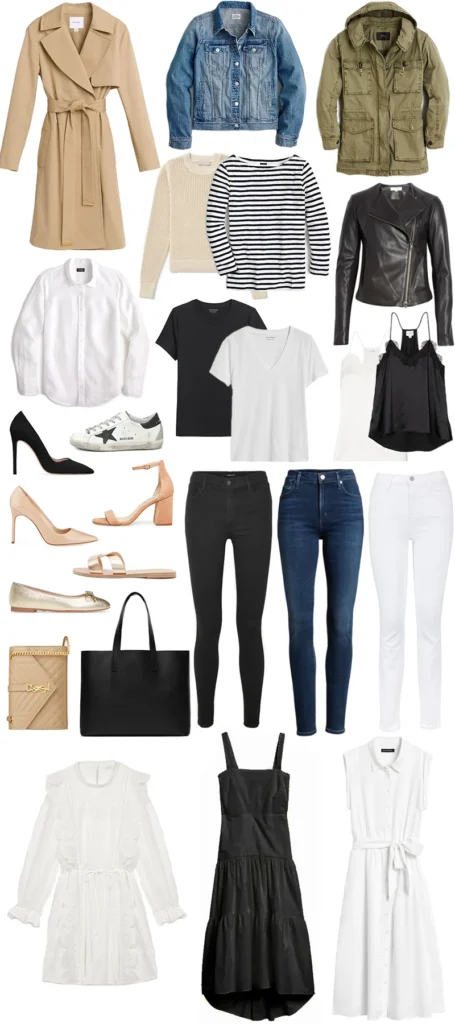In recent years, the fashion industry has witnessed a significant shift towards sustainability, with the phrase “Sustainable Fashion On The Rise!” becoming a rallying cry for eco-conscious consumers and brands alike. As awareness of environmental issues grows, more designers and retailers are embracing eco-friendly practices, from using organic materials to implementing ethical labor standards. This transformation is not just a trend; it represents a fundamental change in how we perceive fashion and its impact on the planet.
In this article, we will delve into the various eco-friendly trends that are reshaping the fashion landscape. You will learn about innovative materials that reduce waste, the rise of circular fashion, and how brands are prioritizing transparency in their supply chains. Additionally, we will explore the role of consumers in driving this change and how your purchasing decisions can contribute to a more sustainable future. By understanding these concepts, you will be better equipped to make informed choices that align with your values.
Join us as we uncover the exciting developments in sustainable fashion and highlight the brands leading the charge towards a greener industry. Whether you are a fashion enthusiast or simply curious about the impact of your wardrobe, this article will provide valuable insights and inspire you to embrace eco-friendly practices in your own life. Read on to discover how sustainable fashion is not just a trend, but a movement that is here to stay!
As the fashion industry faces increasing scrutiny over its environmental impact, sustainable fashion is emerging as a vital trend. This article explores various aspects of eco-friendly fashion, highlighting how these trends are reshaping the industry.
The Rise of Eco-friendly Materials
One of the most significant shifts in sustainable fashion is the adoption of eco-friendly materials. Brands are increasingly turning to organic cotton, hemp, and recycled fabrics to reduce their carbon footprint. These materials not only minimize environmental damage but also offer consumers a more sustainable choice.
For instance, organic cotton is grown without harmful pesticides and fertilizers, making it a healthier option for both the environment and the farmers. Additionally, recycled polyester, made from plastic bottles, helps divert waste from landfills while conserving resources. As consumers become more aware of these options, the demand for eco-friendly materials continues to rise.
Ethical Production Practices
Alongside material choices, ethical production practices are gaining traction in the fashion industry. Brands are now prioritizing fair labor practices, ensuring that workers are paid fairly and work in safe conditions. This shift is crucial in combating the exploitation often associated with fast fashion.
Many companies are now transparent about their supply chains, allowing consumers to make informed choices. By supporting brands that adhere to ethical production standards, consumers can contribute to a more equitable fashion industry. This trend not only benefits workers but also enhances brand loyalty among conscious consumers.
The Impact of Fast Fashion on Sustainability
Fast fashion has long been criticized for its detrimental effects on the environment. The rapid production cycles and disposable nature of fast fashion contribute to significant waste and pollution. As awareness of these issues grows, many consumers are shifting towards sustainable alternatives.
Brands that embrace slow fashion principles focus on quality over quantity, producing timeless pieces that last longer. This approach not only reduces waste but also encourages consumers to invest in their wardrobes rather than constantly buying new items. The movement away from fast fashion is a crucial step towards a more sustainable future.
The Role of Technology in Sustainable Fashion
Technology is playing a pivotal role in the evolution of sustainable fashion. Innovations such as 3D printing and digital fashion are revolutionizing how clothes are designed and produced. These technologies can significantly reduce waste and energy consumption in the manufacturing process.
Moreover, advancements in textile recycling technology are enabling brands to create new garments from old ones, further promoting a circular economy. As technology continues to advance, it holds the potential to make sustainable fashion more accessible and efficient, paving the way for a greener industry.
Consumer Awareness and the Future of Sustainable Fashion
Consumer awareness is a driving force behind the rise of sustainable fashion. As more individuals recognize the environmental and social impacts of their purchasing decisions, they are increasingly seeking out eco-friendly options. This shift in consumer behavior is prompting brands to adopt more sustainable practices.
Looking ahead, the future of sustainable fashion appears promising. With ongoing education and advocacy, consumers can continue to push for change within the industry. As brands respond to this demand, we can expect to see a more sustainable and ethical fashion landscape emerge.
This article explores how eco-friendly trends are transforming the fashion industry.
| Trend | Description | Impact on Industry |
|---|---|---|
| Recycled Materials | Fashion brands are increasingly using recycled fabrics, such as plastic bottles and old garments, to create new clothing. | Reduces waste and lowers the carbon footprint of production. |
| Ethical Production | Brands are focusing on fair labor practices, ensuring workers are paid fairly and work in safe conditions. | Promotes social responsibility and improves brand reputation. |
| Slow Fashion | This movement encourages consumers to buy less and choose high-quality, timeless pieces that last longer. | Reduces overconsumption and waste in the fashion industry. |
| Local Sourcing | Many brands are sourcing materials and manufacturing locally to reduce transportation emissions. | Supports local economies and decreases environmental impact. |
| Vegan Fashion | Vegan materials, such as plant-based leathers and synthetic alternatives, are gaining popularity. | Addresses animal welfare concerns and offers sustainable alternatives to traditional leather. |
| Transparency | Brands are becoming more transparent about their supply chains, allowing consumers to make informed choices. | Builds trust with consumers and encourages ethical purchasing. |



